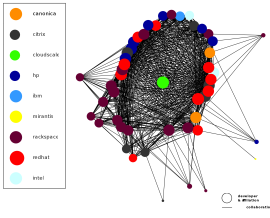
Abstract: Este trabajo analiza la evolución y los determinantes de la desigualdad salarial mensual y horaria en España desde 1995 a 2014 utilizando los datos de la Encuesta Cuatrienal de Estructura Salarial. El aumento de la jornada a tiempo parcial es la variable clave que explica el distinto comportamiento observado en ambas. La primera aumenta…
- Fecha(s): 07/02/2019
- Lugar: Seminario del Departamento de Métodos Cuantitativos para la Economía y Empresa, UMU. Retransmisión en directo.
- Ponente: Luis Aguiar. European Commission – Joint Research Center

Abstract: Digitization has vastly increased the amount of new music produced and, because of streaming, has raised the number of songs available directly to consumers. While enhanced availability has levelled the playing field between already-prominent and new artists, creators may now be highly dependent on platform decisions about which songs and artist to promote. With…
- Fecha(s): 01/02/2019
- Lugar: Seminario de Fundamentos del Análisis Económico Martínez Gallur
- Ponente: Luís Corchón

Abstract: In this paper we investigate the use of consumer surplus in monopoly when the consumption of the outside good cannot be smaller than a certain number and when the weights given in the social welfare function to consumers and the firm are different. We assume quasi-linear utility and constant returns to scale. We find…
- Fecha(s): 18/01/2019
- Lugar: Seminario Tino Martínez Gallur - Facultad de Economía y Empresa. Universidad de Murcia
- Ponente: Alfonso Rosa García

Abstract A general finding in group contest is that there is an over-expenditure of effort, that is contests between groups generate very high individual efforts (and little free riding) compared to theoretical predictions. However, in the literature the way that the prize is shared ranges only between proportional sharing to egalitarian sharing. In many environments…
- Fecha(s): 08/11/2018
- Lugar: Seminario del Departamento de Métodos Cuantitativos para la Economía y Empresa, UMU. Retransmisión en directo.
- Ponente: Francisco Martínez Sánchez. Universidad de Murcia

Abstract: I analyze how the loss aversion of consumers affects the strategies of the government and the incumbent to avoid commercial piracy and the price competition between the incumbent and the pirate. To that end, I develop a sequential duopoly model of vertical product differentiation with price competition in which consumers have a reference-dependent utility….
- Fecha(s): 01/06/2018
- Lugar: Seminario de Fundamentos de Análisis Económico B2/02
- Ponente: Joan María Esteban (Instituto de Análisis Económico)

Abstract: This paper revisits the link between income inequality and social conflict. In spite of its plausibility such link is not finding any clear, strong empirical backing. We explore a particular variation around the basic rent-seeking model of conflict with the goal of obtaining predictions more aligned with evidence [see Esteban and Ray 2008, 2011…
- Fecha(s): 24/05/2018
- Lugar: Seminario del Departamento de Métodos Cuantitativos para la Economía y Empresa, UMU. Retransmisión en directo.
- Ponente: Juan Luis Eugenio-Martin. Universidad de las Palmas de Gran Canaria

Abstract El desarrollo del sector turístico ha evidenciado su relevancia a nivel agregado en términos de valor añadido y empleo generado. Sin embargo, la mayoría de los proyectos y políticas turísticas parten de una iniciativa local. La evaluación de su éxito requiere de un análisis local o regional que requiere del entendimiento del comportamiento de…
- Fecha(s): 18/05/2018
- Lugar: Seminario de Métodos Cuantitativos para la Economía y la Empresa. Facultad de Economía y Empresa. Se retrasmitirá on-line
- Ponente: Karoon Suksonghong (Burapha University)

Abstract This paper models the inbound tourism demand of Thailand by focusing on six major tourism markets, including China, Malaysia, South Korea, Japan, Russia, and India. Several economics variables widely used in the demand modeling literature were adopted. Besides, additional variables pertaining to environmental and security aspect were considered and incorporated into our investigated model….
- Fecha(s): 10/05/2018
- Lugar: Seminario del Departamento de Métodos Cuantitativos para la Economía y Empresa, UMU. Retransmisión en directo.
- Ponente: Pedro Miguel Guerreiro Patolea Pintassilgo. Universidad do Algarve

The management of fish stocks harvested by several countries is an important economic and political issue at the international level. It is estimated that the harvests of these fish stocks account for about one third of world marine harvests. The cooperative management of international shared fish stocks, through International Fisheries Agreements, has proven to be…
- Fecha(s): 16/03/2018
- Lugar: Seminario de Fundamentos del Análisis Económico (aula amarilla, B2/02)
- Ponente: Manuela Magalhäes

Abstract: This paper adds the standard input–output linkages into a multi-sector endogenous growth model to study the interaction effects between linkages and technology adoption for aggregate productivity and for income per capita. We show that the greater the intensity with which a good is used as input by other sectors, the smaller are the technology…











